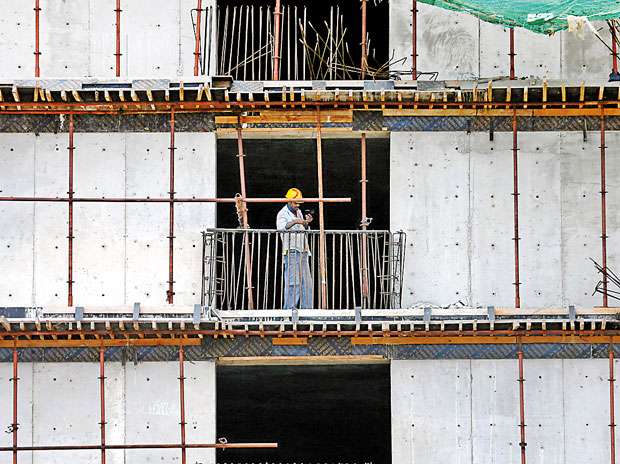08 Nov 2018 - {{hitsCtrl.values.hits}}

A construction site in Colombo
By Nishel Fernando
Colombo’s booming real estate market risks turning Sri Lanka’s capital city into a “ghost town” as there may not be an effective demand to satisfy the increase in supply as many developers and policymakers are reluctant to utilise professional services.
“Today, we see a lot of half-completed buildings. We have to make sure that these are marketable. As chartered surveyors, we should be able to advise the policymakers how to create effective demand to satisfy the current supply, otherwise we will have a ghost town in Colombo,” Royal Institution of Chartered Surveyors (RICS) Sri Lanka Chairman Sunil Fernando said. He was addressing the professionals, policymakers and other industry stakeholders at the 150th anniversary celebration of the RICS in Colombo, last week.
Fernando stressed that the RICS members could play a leading role in allocation of scarce resources, such as land, as such requires inputs from specialists such as surveyors, quantity surveyors, valuation surveyors, etc.
Despite the potential, he noted that the RICS members continue to serve Sri Lanka with a limited scope.
Echoing Fernando’s remarks, Maldives Valuers Private Limited Director Srimal de Mel noted that a lot of development projects have been commenced in Sri Lanka without assessments from valuation professional, as many Sri Lankans tend to believe that the cost is the value.
Expressing her opinion, RICS Sri Lanka Executive Board Member Prof. Chitra Weddikkara said, “There are many construction sites that have not been designed and constructed according to the quality standards. There’s one right in front of my house, which is a condominium, neither constructed nor designed according to the standards.”
Fernando stressed that Sri Lanka’s outdated laws and regulations need to be updated, which would also help the government to expand its revenue base.
“For example, we are still using the principles of the British, which has been left with us. Most of other Commonwealth countries have changed these in order to increase the government revenue base,” he said.
While delivering similar remarks, Valuation Department Chief Valuer P.W. Senaratne emphasised that the outdated Land Reclamation Act has been an obstacle in pursuing with development projects, which has not been updated since 1979.
De Mel also stressed that professionals could also contribute to find alternative methods of financing development projects as well as in tax collection, particularly collecting the capital gains tax.
Responding to a query which high-rise building is in a better shape, De Mel, according to his professional opinion, said that Grand Hyatt Colombo is in better shape today, in particular with land utilisation.
17 Nov 2024 37 minute ago
16 Nov 2024 6 hours ago
16 Nov 2024 6 hours ago
16 Nov 2024 7 hours ago
16 Nov 2024 7 hours ago